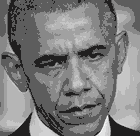|
night slime posted:Transcript of it here if anyone cares: https://citystrolls.com/articles/the-necessary-illusion/ Marr could test his unanswerable theory by having principles, but that is just too much.
|
|
|
|

|
| # ? May 24, 2024 16:33 |
|
Lord of Lies posted:Not necessarily, but it isn't really disputed that media outlets are biased, and Western outlets can reasonably be expected to have a Western bias. Does that bias exist due to influence of corporations and government, though? That's what PM would claim, but no, that cannot be proven. Does the existence of that bias mean that the events in Xinjiang are not genocide? No, it absolutely does not, and if one ever finds themselves viewing media coverage of those events via that lens, that means it's time to pause and reflect on one's own biases. The media outlets themselves are usually corporations/businesses. They are not just collections of independent people. They are private organizations with owners and the goal of making money, and they are subject to the same pressures as any other business. As a result, there are people and organizations with very clear influence over them. Media corporations have an extremely obvious and direct incentive to not act in ways that people/organizations with power over them will be upset with. If a media organization acts in ways that most of the US government dislikes, that's a problem for them. Similarly, they're not going to behave in ways that their shareholders strongly oppose. It is no different than concluding that a think tank heavily funded by conservatives is likely to produce research aligning with conservative ideology. The correct way to think of this isn't "the government and owners/funders tell the media what to say" (though I don't doubt this also happens). It's "media has strong incentives to avoid conflicting with certain people/institutions." Sometimes there are situations where there is a conflict between stakeholders for a media organization, so there are exceptions where reporting might occasionally be opposed by the government. But one can very easily look at the history of US media and see that, far more often than not, it stays within the bounds of what is acceptable to our government and ruling class and agrees with US foreign policy narratives. The only times it doesn't tend to be situations where there's a partisan conflict (like media rarely reporting on Yemen or the conditions of US border camps until Trump was president). And this makes sense - from the point of view of being a business, a media organization is going to want to stay on friendly terms with the government and avoid angering their sources of funding. No one is arguing that you should just automatically assume that reality is the opposite of whatever the media is reporting. That's a strawman you've been forced to use as a weird sort of "god of the gaps" argument ("as long as any examples exist of the media conflicting with the government, it means the media doesn't usually support government narratives"). You and others are the ones actually making radical assumptions here. You're choosing to default to a belief that things the media says are true unless proved otherwise. This is not a reasonable assumption given the history of both US media and media in general - it is the position that requires evidence. The reasonable starting assumption about media should not be that it is independent and reliable - that's the position others should have the burden of defending.
|
|
|
|
Ytlaya posted:No one is arguing that you should just automatically assume that reality is the opposite of whatever the media is reporting. That's a strawman you've been forced to use as a weird sort of "god of the gaps" argument ("as long as any examples exist of the media conflicting with the government, it means the media doesn't usually support government narratives"). You and others are the ones actually making radical assumptions here. You're choosing to default to a belief that things the media says are true unless proved otherwise. This is not a reasonable assumption given the history of both US media and media in general - it is the position that requires evidence. The reasonable starting assumption about media should not be that it is independent and reliable - that's the position others should have the burden of defending. I don't think the bolded is a necessary argument for the PM criticism I've seen this thread. To the contrary, the argument generally seems to be that the PM always gives that as an easy option, and that it naturally, perhaps inherently, guides the reader to invoke it whenever conscious or subconscious biases would find it convenient. If a story doesn't reinforce your world view, or if it seems to get more attention than one that does, it's easy to ascribe to the motivation of the elites. Even if there isn't a clearly visible path for why the real reporting would serve the interest of such elites, the very same collective and indirect nature of said elites just makes that kind of inscrutability on their part more plausible. In short, that Herman and Chomsky's Propaganda Model has the same failure modes as Uncle Facebook's much simpler Mainstream Media Model, with insufficient safeguards to give it better results. Which I guess is kinda the issue. There's no doubt that, with a paper book from a well-known scholar compared to a five minute rambled explanation of "how they get you", the PM is much better suited to a college syllabus. To actual people, however, its value in media analysis lies entirely in the difference from the MMM. Given two groups with similar education and preexisting biases but one trained in the formal model and one the informal one, what kind of insights would you expect the PM to give that the MMM does not, and what false beliefs would they avoid that the other group would be vulnerable to? Full disclosure, I haven't done any real study of the Propaganda Model, so it might be able to do all that! But I know that in this thread its critics have done a pretty good job of arguing that its failure modes are serious and frequent, while its defenders have seemingly done a lot more to call those claims mean than to explain the value of the PM's non-trivial assertions.
|
|
|
|
To my mind, the most significant difference between the PM and the “Mainstream Media Model,” is that media under the PM isn’t actually lying to us in the sense that it is reporting false information. The PM is about what actually gets reported, how what gets reported is framed, and identifying defined terms like the phrase, “peace process.”
|
|
|
|
Ytlaya posted:The correct way to think of this isn't "the government and owners/funders tell the media what to say" (though I don't doubt this also happens). It's "media has strong incentives to avoid conflicting with certain people/institutions." Sometimes there are situations where there is a conflict between stakeholders for a media organization, so there are exceptions where reporting might occasionally be opposed by the government. But one can very easily look at the history of US media and see that, far more often than not, it stays within the bounds of what is acceptable to our government and ruling class and agrees with US foreign policy narratives. The only times it doesn't tend to be situations where there's a partisan conflict (like media rarely reporting on Yemen or the conditions of US border camps until Trump was president). And this makes sense - from the point of view of being a business, a media organization is going to want to stay on friendly terms with the government and avoid angering their sources of funding. So, Chomsky does do, I think, a pretty good job of showing the window of reporting the US media was willing to do in his period, but I don't think his causal explanation particularly tracks. For example, his explanation for the media turning against the Vietnam War was corporations deciding to pull out in 1968. This is kind of his problem ascribing some kind of unity in thought to the elites- it just kind of retroactively justifies anything, so that whatever the POV that gets reported, that's obviously the elite one. Manufacturing Consent doesn't do a really good job of arguing that the result(a window of reporting in mainstream outlets that is narrow without the need for a centralized propaganda bureau), is caused by the things he suggests, he just posits them. I think some of his assumptions don't really work today, even if they might have in the 1980s. It is, for example, very possible to run a media outlet with no access, simply regurgitating social media or reporting from other institutions with any kind of ideological framing a consumer might like. The barrier of entry to actually run media has never been lower(though the barrier of entry to actually gather information and do reporting is higher), though there are fewer paying jobs out there. This has resulted in a media that is more diverse than ever. Sure, you can say the PM still applies to respectable media today, and that's certainly possible, but then, how much does it really matter? It's easier to find marxist-themed news content than ever, whereas in the days of Manufacturing Consent, it was quite limited in availability.
|
|
|
|
Panzeh posted:I think some of his assumptions don't really work today, even if they might have in the 1980s. It is, for example, very possible to run a media outlet with no access, simply regurgitating social media or reporting from other institutions with any kind of ideological framing a consumer might like. The barrier of entry to actually run media has never been lower(though the barrier of entry to actually gather information and do reporting is higher), though there are fewer paying jobs out there. This has resulted in a media that is more diverse than ever. Sure, you can say the PM still applies to respectable media today, and that's certainly possible, but then, how much does it really matter? It's easier to find marxist-themed news content than ever, whereas in the days of Manufacturing Consent, it was quite limited in availability. The PM was always more applicable the more “respectable” media got. It’s spelled out explicitly in Manufacturing Consent. I don’t think anybody would disagree that certain media outfits don’t follow the PM, but nothing has fundamentally changed about how print or (most) tv news operates.
|
|
|
|
The Kingfish posted:The PM was always more applicable the more “respectable” media got. It’s spelled out explicitly in Manufacturing Consent. I don’t think anybody would disagree that certain media outfits don’t follow the PM, but nothing has fundamentally changed about how print or (most) tv news operates. Nothing has changed in print news in the way nothing much has changed recently in horse carriage technology.
|
|
|
|
I can't recommend Parenti enough. He's written two books about the media. Inventing Reality and Make-Believe Media. Here is a good talk by Parenti on Youtube on the subject of the media. https://www.youtube.com/watch?v=9g3kRHo_vpQ First 15 minutes transcribed for those who don't want to watch video: quote:Thank you it's very nice to be here. What I was going to do is address myself to two basic myths one the myth that we have a free and independent press and media and two the myth that it's a liberal press. And then I'll also say something about entertainment because it's part of the it's an extension of it after I wrote Inventing Reality I realized there's a, when you look at television there's the other 85% of television which has nothing to do with the the press or the news media and that's the entertainment field so I wrote another book called Make-believe Media about the entertainment media and I say something about that also. I thought this was a good part: quote:what will happen is somebody will mosey over to you with the water cooler and say you know don't get over involved in your story here or you don't get run off becoming a cause person or you got to be objective and objective means objectivity means taking the world as officialdom says it is, objectivity means not bringing up troublesome information that might cause discomfort to people of power and position especially economic power especially big corporate advertisers who pay our bills and the like If you can read Swedish I recommend reading Torsten Thurén. He has published some books and also written reports for various Swedish government agencies about source criticism, disinformation and conspiracy theories. I wish more of his work was translated to English. Here is an English summary from Source Criticism for the Internet by Göran Leth and Torsten Thurén. About the authors: Göran Leth is Senior Lecturer in the Department of Journalism, Media and Communications at the University of Stockholm. Torsten Thurén is Prinicipal Lecturer in the Department of Journalism, Media and Communications at the University of Stockholm. The English summary starts on page 142. URL: https://rib.msb.se/dok.aspx?Tab=2&dokid=27968 Direct link to PDF: https://rib.msb.se/filer/pdf/27968.pdf Images from the PDF: quote:Text-version quote:SOURCE ANALYSIS FOR THE INTERNET Some of it is outdated but a lot of it is still useful today when examining media and sources. Jon Pod Van Damm fucked around with this message at 19:48 on Jul 2, 2021 |
|
|
|
Owlofcreamcheese posted:Nothing has changed in print news in the way nothing much has changed recently in horse carriage technology. Print media, including their online content. Obviously.
|
|
|
|
ted hitler hunter posted:Please timg this.
|
|
|
|
Thought this was a nice example of deceptive, pro-police framing in US local media, stolen from the CalPol thread. Probably not a shocker to anyone reading this thread, but it’s just so drat egregiousFCKGW posted:That's basically the framing many news orgs are taking lol
|
|
|
|
The “Editing the Grey Lady” Twitter account frequently has good examples of consent being manufactured in realtime.
|
|
|
|
The Kingfish posted:The “Editing the Grey Lady” Twitter account frequently has good examples of consent being manufactured in realtime. Some appear extra messed up if you don't realize the page in question is a "latest story" type thing.
|
|
|
|
Corky Romanovsky posted:Some appear extra messed up if you don't realize the page in question is a "latest story" type thing. Sometimes it's just updating the story to focus on new developments, yeah. And most often it's not even that, just minor grammar/style tweaks. But other times it does come across as a deliberate change in framing (from the reason produce market workers were striking to the possible consequences of the strike for consumers, for example) that's a lot harder to justify. I think what really rankles about that sort of thing, which I discussed earlier in this thread, is that it doesn't really matter how hard it is to justify because nobody has to justify it. The headline writer is anonymous or nearly so, and there's no ombudsman anymore.
|
|
|
|
Discendo Vox posted:I'd appreciate it if you could crosspost this in the media lit thread; it's a great example of abusive sourcing.  Politico has been running this article the entire year about how secretly WH officials are worried that Larry was right all along! But if you actually read any of the articles the only comments they ever get from the WH are saying that Larry is a big dum dum. quote:https://www.politico.com/news/2021/07/13/larry-summers-biden-inflation-499502
|
|
|
|
gradenko_2000 posted:
The Media! (USER WAS PUT ON PROBATION FOR THIS POST)
|
|
|
|
https://twitter.com/JuliaDavisNews/status/1419409348128874496 https://www.bbc.com/news/blogs-trending-57928647 I want to briefly highlight this low-competence effort at antivaxx propaganda, almost certainly coming out of Russia and targeting a variety of populations. The full article is worth a read, but I want to highlight this part: quote:The influencers were also provided with a list of links to share - dubious articles which all used the same set of figures that supposedly showed the Pfzer vaccine was dangerous. The practice of spreading the same false claim across multiple sources, then re-aligning them in secondary mediators, is a common and effective method of introducing falsehoods into discourse and creating the illusion of consensus around them. I'll write about this in further detail (with charts!) in a future effortpost.
|
|
|
|
Two articles that are related to what Discendo Vox posted above: How Disinformation Evolved in 2020 quote:3. Political actors are increasingly outsourcing disinformation. Disinformation for Hire, a Shadow Industry, Is Quietly Booming quote:In May, several French and German social media influencers received a strange proposal. The article goes into several examples of this, and talks about how the various platforms have been trying to adapt their defense to the new disinformation tactics. But the bad actors can get pretty sophisticated: quote:A set of pro-Beijing operations hint at the field’s capacity for rapid evolution.
|
|
|
|
I figured this should go here https://twitter.com/asawinstanley/status/1341011225140981761?s=21 I don’t see any positive in a news organization that caters to the need of the US government (USER WAS PUT ON PROBATION FOR THIS POST)
|
|
|
|
theCalamity posted:I figured this should go here Well, we can start with how the information in the tweet is inaccurate. Dawn doesn't work for Reuters the media company, she works for Thomson Reuters, the larger corporation that owns Reuters. TR is a massive conglomerate that includes a bunch of companies contracting with the US government for information and publishing activity. Westlaw, for instance, is a TR company. Scalisi appears to have been hired in an effort to build up their government contracting. This sn't new. TR's had, or tried to have, data science divisions doing contract work for law enforcement for years; you can scroll down from the earlier link and see some of their projects (I'm not clear on how successful they've been; most of their activity has been buying up and dropping startups, or putting a fresh coat of marketing and UI on existing datasets). Oh, and Dawn Scalisi left TR in 2018. The mediating tweet is linking to an un-updated "author bio" page that TR has for when they think a given user or employee is going to write something for the site. What are the author's interests in sharing it? Why are they mischaracterizing facts? Given that the initial source frames the information in a misleading way, let's take a look at how the information is mediated. How did you encounter this tweet? It's from December of 2020. What were the interests of the people who passed it to you? How does it appeal to your prior beliefs, such that you didn't notice the factual issues with it? Discendo Vox fucked around with this message at 16:17 on Jul 27, 2021 |
|
|
|
DVs response to the post kind of makes it a shame that the poster got probed, since this is a great opportunity to examine this process in situ. I hope they come back and respond once the probe is complete.
|
|
|
Discendo Vox posted:Dawn doesn't work for Reuters the media company, she works for Thomson Reuters, the larger corporation that owns Reuters. Do you ever read your own overly-long posts about how everyone besides you is wrong and should be punished for not writing as many words about exact technicalities as you do 'she doesn't work for the media company she works for the company that owns and operates the media company, these are completely different things and this is totally not a conflict of interest where an alphabet soup alumni is being placed in a position of authority in the media'
|
|
|
|
|
Gulping Again posted:Do you ever read your own overly-long posts about how everyone besides you is wrong and should be punished for not writing as many words about exact technicalities as you do She hasn't worked for the company at all in 3 years and that tweet is from 8 months ago what relevance does it have now? Did you actually read his post?
|
|
|
socialsecurity posted:She hasn't worked for the company at all in 3 years and that tweet is from 8 months ago what relevance does it have now? Did you actually read his post? quote:TR is a massive conglomerate that includes a bunch of companies contracting with the US government for information and publishing activity. Westlaw, for instance, is a TR company. quote:Scalisi appears to have been hired in an effort to build up their government contracting. This sn't new. TR's had, or tried to have, data science divisions doing contract work for law enforcement for years quote:you can scroll down from the earlier link and see some of their projects (I'm not clear on how successful they've been; most of their activity has been buying up and dropping startups, or putting a fresh coat of marketing and UI on existing datasets). I don't see how pointing out that the tweet is pointing at an old page makes the 21 year CIA veteran who got a cushy job trying to bind the bundle of Government and Private Enterprise ever tighter somehow okay to begin with. Like bad things don't magically stop being bad when you point out that they happened in the past, despite what Handsome Ralph believes. edit: corrected the number of years the woman in question worked at the imperialism factory (USER WAS PUT ON PROBATION FOR THIS POST) Gulping Again fucked around with this message at 04:19 on Jul 28, 2021 |
|
|
|
|
Gulping Again posted:I don't see how pointing out that the tweet is pointing at an old page makes the 33 year CIA veteran who got a cushy job trying to bind the bundle of Government and Private Enterprise ever tighter somehow okay to begin with. Like bad things don't magically stop being bad when you point out that they happened in the past, despite what Handsome Ralph believes. It's relevant for all the reasons Vox posted, none of which you specifically addressed. He obviously put work into what he's been posting here, why can't you do the same?
|
|
|
|
Gulping Again posted:This is ghoulish. I'm curious what you mean by this. Your quote is simply DV stating some facts. Stating and acknowledging facts isn't the same thing as endorsing them as good, or just, or right.
|
|
|
|
Gulping Again posted:I don't see how pointing out that the tweet is pointing at an old page makes the 33 year CIA veteran who got a cushy job trying to bind the bundle of Government and Private Enterprise ever tighter somehow okay to begin with. Like bad things don't magically stop being bad when you point out that they happened in the past, despite what Handsome Ralph believes. I went ahead and looked at that lady's LinkedIn profile, and I don't know where the "33 years of CIA" number comes from:    Now, math isn't my strong suit but these numbers seem to add up to only 21 years or so. The only thing that's objectionable about this lady is that she graduated with a bachelor of science in marine biology, then got a job at the CIA analyzing Soviet nuclear security and arms control. Like, what the gently caress? Way to waste a cool and interesting BS degree by doing something boring.
|
|
|
|
Thorn Wishes Talon posted:I went ahead and looked at that lady's LinkedIn profile, and I don't know where the "33 years of CIA" number comes from: I would guess they're counting the whole time she was working for the US intelligence apparatus and just using CIA officer as (admittedly slightly lazy) shorthand because that's where she spent over two decades of her working life. It's perhaps a bit clumsy but conveys the important fact which is that she was working directly for the worst parts of the US government for three decades. I would contend that that's probably the most objectionable thing about this woman, also.    Maths isn't my strong suit either, but 1982+33=2015 and that neatly matches with the end date of her role at the Office of the Director of National Intelligence, which is, I presume, some sort of spy agency. I don't think the fact she wasn't technically employed by the CIA for some of those years substantively changes the point that this woman went from working for the US government to overseeing a large media conglomerate that's the parent company for Reuters. Maybe she wasn't still taking orders from Langley when she was working there (although there are always rumours about how much one really "retires" from the CIA, obviously), but I think we can assume her world view and ethos was, if not actually directly shaped by her time working as an intelligence agent, certainly reflected by it.
|
|
|
|
Anyone who ahs ever willingly worked for the CIA should, at the very least, be in jail forever. The CIA is the vilest loving organization in the world and anyone who has ever worked for them is a dead-eyed psycho. You can't trust them, and if you do you're very stupid.
|
|
|
|
MonsieurChoc posted:Anyone who ahs ever willingly worked for the CIA should, at the very least, be in jail forever. Can you clarify what you mean by "at the very least"?
|
|
|
|
MonsieurChoc posted:Anyone who ahs ever willingly worked for the CIA should, at the very least, be in jail forever. That's pretty much every intelligence agency ever? Not disagreeing, but pretty much every countries Intelligence Orgs are evil, torturing, lying bastards. CommieGIR fucked around with this message at 17:42 on Jul 28, 2021 |
|
|
|
Thorn Wishes Talon posted:Can you clarify what you mean by "at the very least"? Well in a perfect world they’d all be sent to The Hague for crimes against humanity. The moment someone is connected to the pit of evil that is the CIA, you can’t trust or respect them in any way. They have shown they are okay with committing extremely evil acts solely to maintain the power of Capital over the world. They’d kill and torture you in a second if ordered to, without even needing a real reason.
|
|
|
|
CommieGIR posted:That's pretty much every intelligence agency ever? Not disagreeing, but pretty much every countries Intelligence Orgs are evil, torturing, lying bastards. Well, yes, but also kind-of no. While I have no doubt that other intelligence orgs are full of torturing sociopaths and othe rmonsters, and I would argue we should abolish all of them, the CIA stands on a tier of it's own. Both for the scale of it's operations and for how it has never really functionned as an Intelligence agency. From it's very beginning it was more like organised crime, with it's incompetency in the domain of intelligence being only met by the amount of horror it was willing to inflict to pursue it's agenda around the world. This has been well-documented, with tons of books and research going into it. Even books relatively positive on the CIA can't help but underline how bad it is at actual Intelligence. We're getting off-topic though. If Media Analysis is the aim, you can't trust anything someone connected to the CIA says. You just can't. Find other sources of info, because even if it's true, it's only true by complete accident.
|
|
|
|
This isn't really the thread to detail exactly how evil the US Intelligence apparatus is, though it is valid to point out that someone who has spent most of their adult life in their service is probably going to seriously slant their media career.
|
|
|
|
fool of sound posted:This isn't really the thread to detail exactly how evil the US Intelligence apparatus is, though it is valid to point out that someone who has spent most of their adult life in their service is probably going to seriously slant their media career. That's true but this woman who started this conversation didn't have a media career.
|
|
|
|
The tweet isn't really relevant to media literacy or criticism except as a demonstration of how misinformation can be recirculated, and how when its problems are identified, people who are its targets can become trapped in its initial framing.
|
|
|
|
Discendo Vox posted:The tweet isn't really relevant to media literacy or criticism except as a demonstration of how misinformation can be recirculated, and how when its problems are identified, people who are its targets can become trapped in its initial framing. It is kinda relevant as it point show willing people are to ignore the many many links between American media and the darkest parts of American govenrment. You twisted yourself into a pretzel to somehow say the tweet was inaccurate when it is. She was a high-ranking Reuters director who also worked for the CIA for 30 years. The fact that you have these massive media conglomerates that own a lot of medias and are staffed with intelligence and military adjacent personel should lead you to doubt a lot of what you're told.
|
|
|
|
Yeah, now that I think about it, you're absolutely right. The only outlets we can actually put our faith in are pure ones ones like Jacobin, and high-integrity journalists like Glenn Greenwald. Everything else is corrupt! (USER WAS PUT ON PROBATION FOR THIS POST)
|
|
|
|
MonsieurChoc posted:It is kinda relevant as it point show willing people are to ignore the many many links between American media and the darkest parts of American govenrment. You twisted yourself into a pretzel to somehow say the tweet was inaccurate when it is. She was a high-ranking Reuters director who also worked for the CIA for 30 years. Look at all these massive generalizations! How about instead of making things up, you actually quantify the "many" links, and define what exactly you mean by "American Media".
|
|
|
|

|
| # ? May 24, 2024 16:33 |
|
Hmm, non-sequitur but I always liked this bit from a 1989 Chomsky book:quote:To confront power is costly and difficult; high standards of evidence and argument are imposed, and critical analysis is naturally not welcomed by those who are in a position to react vigorously and to determine the array of rewards and punishments. Conformity to a "patriotic agenda," in contrast, imposes no such costs. Charges against official enemies barely require substantiation; they are, furthermore, protected from correction, which can be dismissed as apologetics for the criminals or as missing the forest for the trees. The system protects itself with indignation against a challenge to the right of deceit in the service of power, and the very idea of subjecting the ideological system to rational inquiry elicits incomprehension or outrage, though it is often masked in other terms.
|
|
|











































